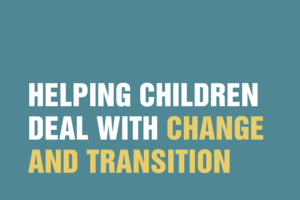Most people are familiar with the term co-dependency, which is when a person has an emotional reliance on their partner and acts as a caretaker. This often results in an unhealthy, unbalanced relationship that doesn’t satisfy both people’s needs. While this term is quite well known, considerably fewer people have heard of counter-dependency. Like co-dependency, counter-dependency can make it difficult to navigate relationships, but for different reasons.
While healthy relationships are built on trust and a deep emotional connection, counter dependents might experience feelings of distrust and a reluctance to make profound connections with someone. This can make it challenging for a counter-dependent person to have a successful and healthy relationship, and they may even think it’s not possible.
However, with the right level of awareness and a willingness to work on themselves, a counter-dependent person can experience loving and intimate relationships that are both long-lasting and healthy.
If you suspect you’re showing signs of being counter-dependent and are keen to learn more about how you can better manage your mental health and achieve a healthy foundation for a relationship, keep reading. In this post, our experts will explain more about counter-dependency and how you can mitigate the symptoms to develop a strong connection with a partner.
What is counter-dependency?
Counter-dependency is the opposite of co-dependency. If a person is counter-dependent, they tend to be very independent and highly focussed on their own needs. They may appear strong-minded, high-functioning, and successful to other people, but this isn’t always how they feel on the inside.
Internally, counter-dependent people can struggle with low self-esteem. They are often insecure, sensitive and very critical of themselves. This is because counter-dependency is thought to stem from having a traumatic childhood, or dealing with childhood neglect. Children who were abused or not shown a great deal of affection and appreciation are often the most likely to grow up to be counter-dependent. These children may have therefore grown up being self-sufficient due to their lack of a parental figure. Overtime, this can lead them to believe that they don’t need anyone else. In terms of relationships, a counter-dependent person may have an avoidance mindset, and be reluctant to let anyone else in. They may choose to push people away as a preventative measure to protect their feelings.
If you’re counter-dependent, you might find that it’s difficult for you to trust people, and that you’re distant and somewhat unbothered when it comes to forming deep bonds in relationships. You might even feel like you’re being suffocated when family members or friends show you love or affection – this can trigger you to pull back from the intimacy. This approach naturally makes it difficult to maintain a healthy relationship, especially if the person you’re with is co-dependent and frequently requires validation and reassurance.
Key signs of being counter-dependent
There are a number of signs that indicate you might be counter-dependent, although these can vary from person to person. Some of the most common counter-dependency traits include:
- Not wanting to ask for help
- Having an innate fear of being rejected
- Feeling as though you’re trapped or suffocated in a relationship
- Thinking you’re superior to others and not wanting to admit fault
- Being scared of forming deep emotional connections
- Pushing people away if they get too close
- Being vehemently against coming across as needy or vulnerable
- Being highly critical of yourself
- Tending to date co-dependent people
- Being non-confrontational and against conflict
- Wanting to avoid conflict
- Being fiercely independent and self-reliant
- Difficulty relaxing
Can a counter-dependent person have a healthy relationship?
The traits of counter-dependency often make it difficult to have healthy relationships. In fact, if you’re counter-dependent, you might find that your relationships are mostly unhappy, and aren’t typically long-term.
A lot of this comes from being unable to take criticism in a constructive way, sulking or complaining a lot, having a tendency to lose empathy, and having difficulty trusting people and letting them in on a deeper level. That being said, with the right level of self-awareness and counselling, anyone struggling with counter dependence can build a loving, healthy and long-lasting relationship. Here are some initial steps you can try:
- Admit you’re counter-dependent
The first step you can take as a counter-dependent person is to recognise that you’re counter-dependent. If you show signs of counter-dependency and find it difficult to maintain healthy, long-lasting relationships, it’s important to take steps to begin to recognise when you’re exhibiting counter-dependent traits. For example, you may start to become more aware of your inflated sense of superiority and independence, which in turn may cause you to put your own needs before those of your partner. Your self-reliance may be stopping you from forming the deep bonds your partner desperately wants. Understanding where your traits clash with your partner’s can help you to build trust, and true happiness in your relationship.
- Learn to accept your flaws
It’s not always easy for someone who is counter-dependent to admit that they have flaws and sometimes do things wrong – this could stem from being told they weren’t good enough as a child and now wanting to try their utmost to be perfect, even though that’s not attainable. As someone who is counter-dependent, a good step to take is to realise that you’re not perfect – nobody is – and that’s okay.
Taking steps to accept your flaws and learning to accept criticism will have a ripple effect on other areas of your relationship. Communicating in a productive and constructive way is one of the foundations of a healthy relationship because it means you’re able to recognise when you’re wrong and take accountability. When you realise your partner doesn’t expect you to be perfect and that it’s normal to mess up without automatically being a failure, you’ll find it easier to navigate tricky conversations and find more positive outcomes.
- Accept intimacy
Counter-dependent people often appear as though they are cold and distant and don’t want intimacy, but deep down, they crave love and affection. If you’re counter-dependent, there’s a good chance you reject intimacy because in the past, being open has left you vulnerable to getting your feelings hurt, so to prevent this from happening again, you keep your guard up.
Given that a lot of counter-dependent people find themselves in relationships with co-dependent people, this can cause issues within the relationship, and the constant rejection of intimacy fuels feelings of loneliness that many co-dependent people battle with. This in itself can lead to tension, conflict, and ultimately, unhappiness.
Although intimacy is what counter-dependent people fear the most, being able to accept it is one of the biggest steps to forming a healthy, loving relationship. Abandoning a fear of intimacy isn’t easy, but take small steps to recognise when you’re pushing someone away and make a specific effort to let someone in little by little. Eventually, you’ll find yourself realising that you are worthy of love and affection and are capable of receiving it without getting your feelings hurt.
- Get support from a therapist
One of the best tools counter-dependent people can use to overcome their symptoms is to go to therapy. Doing so will allow you to tap into the root cause of your counter-dependency and help you to develop new coping mechanisms that won’t potentially cause issues within your relationships.
Counselling can also provide an excellent opportunity for you and your partner to communicate in a controlled environment and teach you new ways to resolve your problems in a respectful and healthy way.
On top of this, therapy can assist in helping you to spot when you’re exhibiting counter-dependency behaviours and help you build and develop a sense of self-awareness and accountability that isn’t necessarily self-critical.
TAC relationship support
Coming to terms with the fact that you’re counter-dependent can be a bitter pill to swallow, but it doesn’t mean that you can’t have healthy relationships. With the right guidance and coping mechanisms in place, it’s entirely possible for a counter-dependent person to build a loving, trusting, intimate relationship – but it will take some work.
At The Awareness Centre, we provide couples counselling to those who are facing obstacles that they’re struggling to overcome. All relationships take work and couples counselling is a healthy, normal service designed to help you work through your problems in a professional and productive capacity.
It can yield incredibly positive results and help couples to become stronger and more bonded than ever, so it’s a good option for couples where there is a co-dependent and counter-dependent dynamic.
If you are aware of your counter-dependent traits and want to take steps to manage your behaviours before embarking on a new relationship, we also offer individual counselling and therapy. This can help you dig into why you’re counter-dependent and help you face up to what’s caused you to fear intimacy.
To find out more about counter-dependency and how you can get on top of it to have better, healthier relationships, feel free to get in touch with our team of experts to develop the most effective course of action for you.








